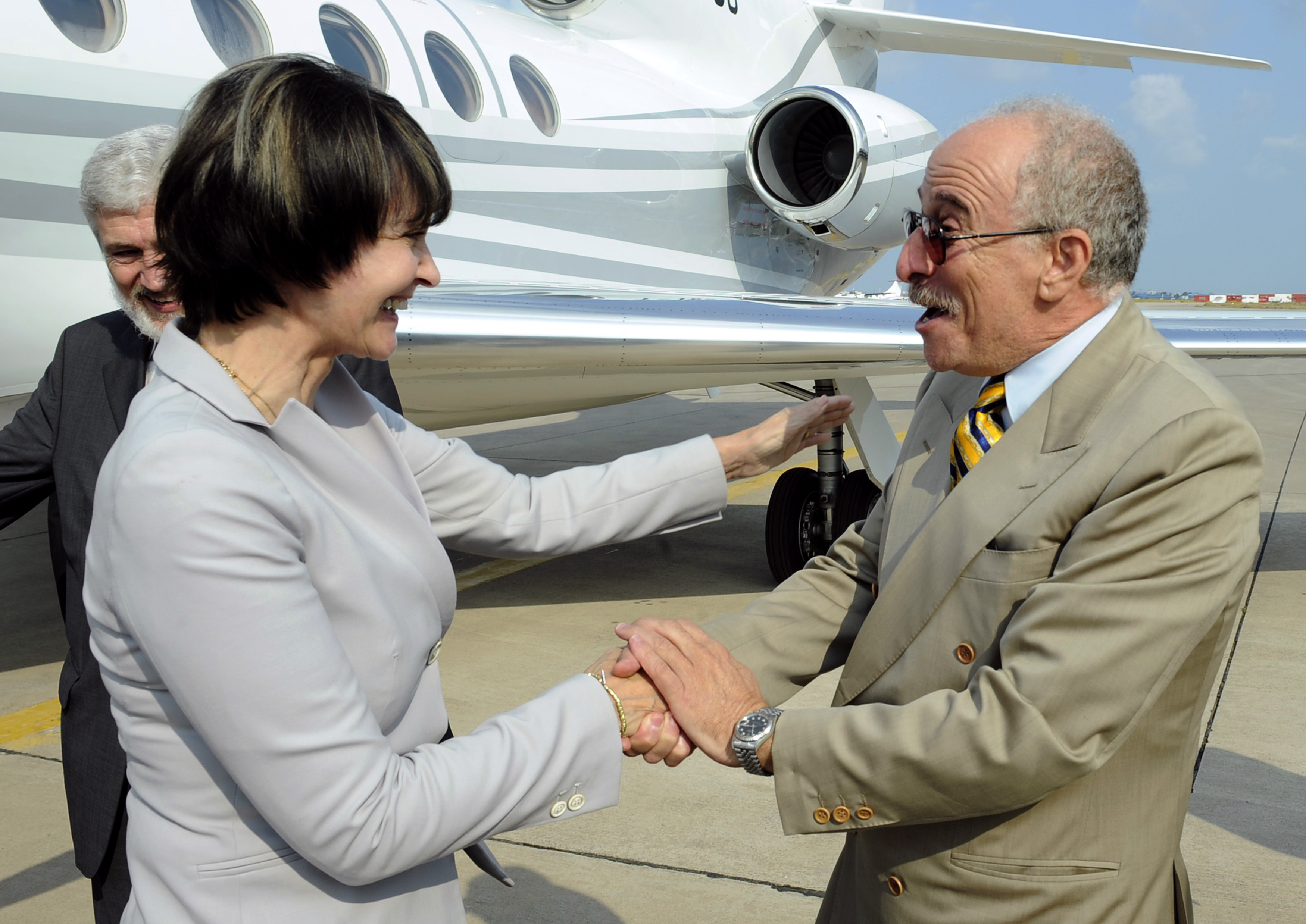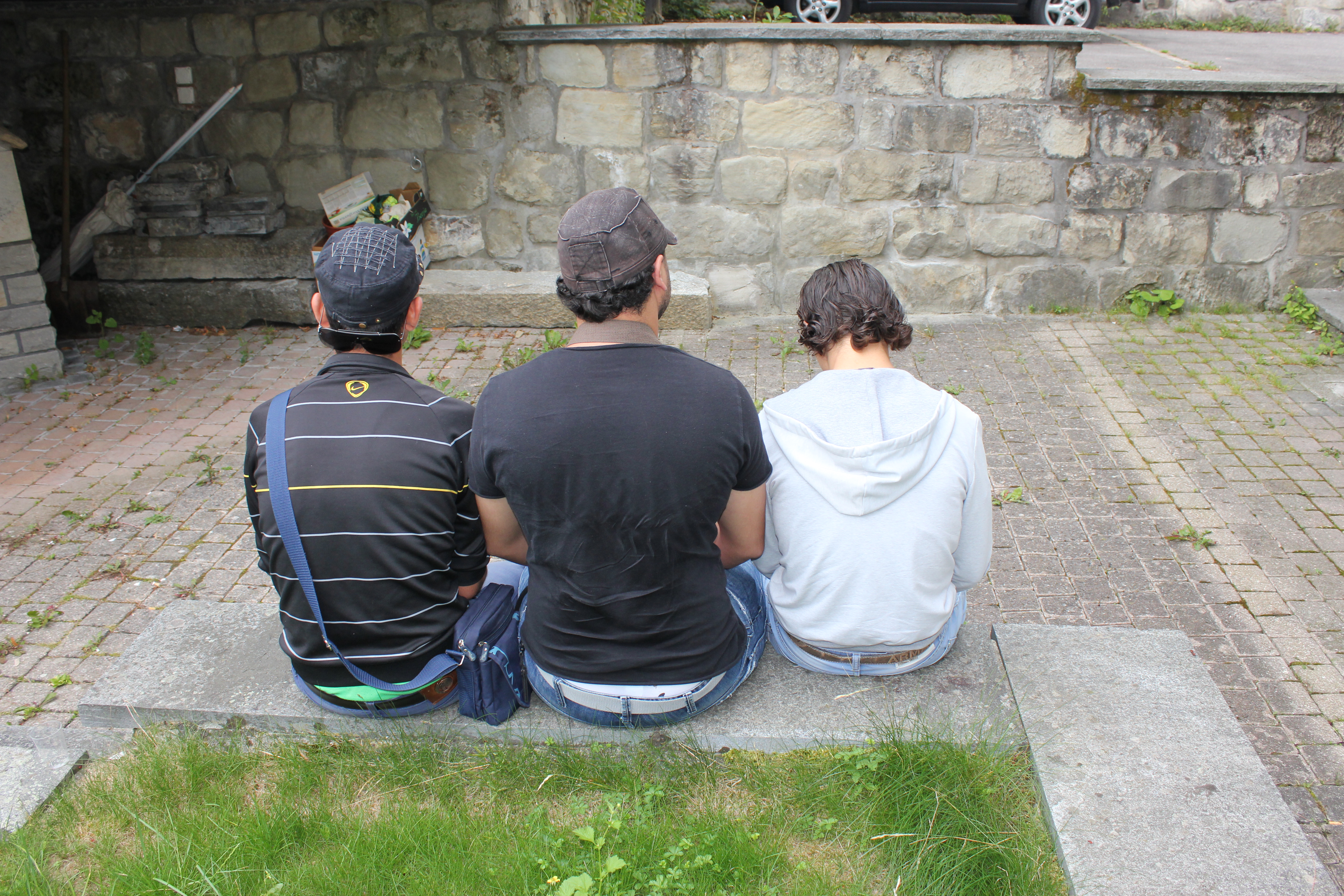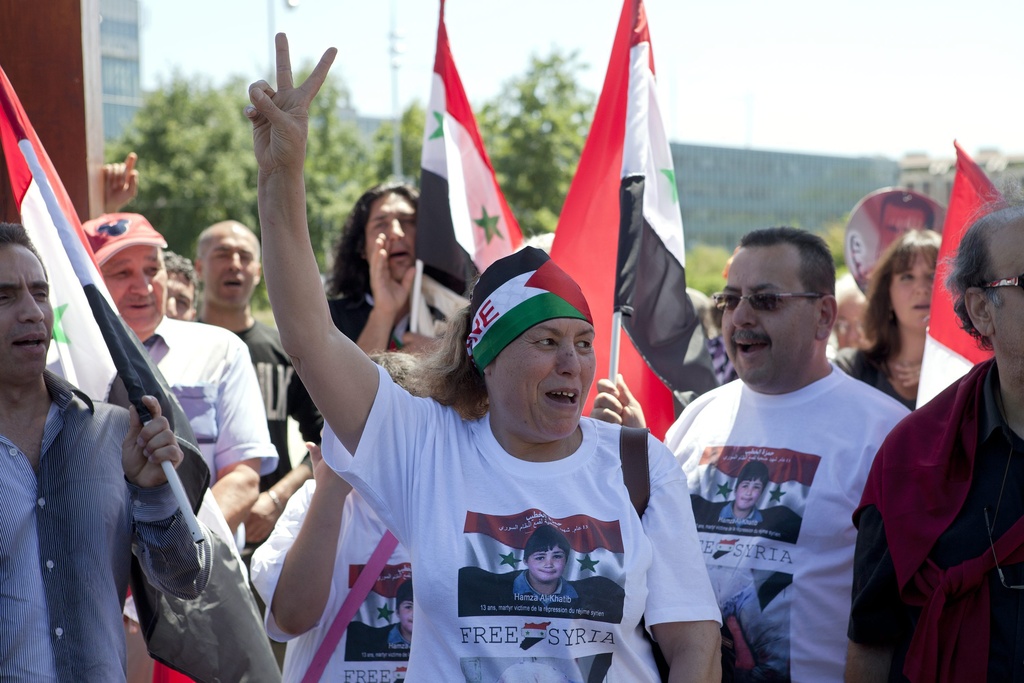Swiss observer upbeat about Tunisian elections

Nine months after their “Jasmine Revolution” Tunisians are going to the polls on October 23 to elect a constituent assembly to draw up a new constitution.
swissinfo.ch spoke to Andreas Gross, who has been chosen by the Council of Europe to head its mission to observe the elections.
Gross, a member of the Swiss parliament for the centre-left Social Democrats, is one of the Swiss representatives in the Council.
He says the bodies in Tunisia responsible for organising the elections have shown themselves strong and capable, and democracy is being respected.
swissinfo.ch: Why is the Council of Europe so interested in Tunisia?
Andreas Gross: Right after the success of the Tunisian revolution in the middle of January, the parliamentary assembly of the Council of Europe established close links with the revolutionaries and the people overseeing the transition. Our own observations and the personal contacts made then demonstrate the strength of the assembly’s support for the new Tunisia.
swissinfo.ch: What tasks will this mission perform?
A.G.: It’s absolutely essential for the future of the new Tunisia and for democracy that the constituent assembly which will be elected on October 23 should be seen as legitimate. The aim of our pre-electoral mission in September, and our presence during the elections, is to help ensure that the process is carried out in a proper and fair way, in conformity with the standards set by the Council of Europe, so that the legitimacy of the assembly should not be open to challenge by anyone.
swissinfo.ch: On September 23 seven long-term observer teams of the European Union left the capital to take up position in the furthest flung constituencies in the country. Do they have enough means at their disposal?
A. G.: These are teams sent by the European Commission in place of ones from the Office for Democratic Institutions and Human Rights (Odihr) of the Organization for Security and Co-operation in Europe (OSCE) to observe elections outside OSCE member countries [because the OSCE can only observe its own member states]. It’s very useful to have these teams in the regions, not least because the election campaign only lasts for three weeks, from October 1 to 21.
Of course you could always do more and do it better, but I am very grateful that the European Union is getting involved and is ready to share its analyses with us. Anyway, we always depend on long-term observer missions in our work.
swissinfo.ch: You have taken part in several similar missions in the Balkans and in the Caucasus. What are the similarities and what are the differences between these cases and the democratic transition that Tunisians are currently involved in?
A. G.: That’s a very good and interesting question. Many of the 57 observer missions I have been on since 1995 were conducted in post-communist and post-totalitarian countries where the new political space was grabbed by oligarchic groups who tried to cheat and manipulate the elections to win seats in parliament.
In Tunisia I feel the revolutionaries, civil society and especially the three commissions tasked with protecting the gains of the revolution and who have prepared not only the elections but also the legislation on parties and their financing are really strong and capable, and that’s something that makes a huge difference.
The framework of these elections, the first really free ones since Tunisian independence in 1956, is exceptionally solid. The competition is balanced and respects the rules, and the electoral process will be much more serious and the rules will be better respected than in a lot of countries in the ex-communist bloc, where the changes were more like the settling of scores between élites than real revolutions where power could be shared with the people.
swissinfo.ch: What do you think of the preparations that been made over the past several months by the Independent Higher Body for the Elections (ISIE) which was established for the purpose?
A. G.: The ISIE was set up to safeguard the achievements of the revolution. We have met some of the members and were impressed by the way in which they are working, their openness and their sensitivity to the problems. Their task isn’t easy, but they are doing a remarkable job which will benefit democracy and the common cause.
swissinfo.ch: If you find abuses, attempted fraud or shortcomings, and the ISIE and/or the government do nothing, how much room for manoeuvre do you have?
A. G. The ISIE is the body responsible for the procedure and it is ready to listen to us and respond to our observations. That has been the case up to now and I am sure it will continue like this in the weeks before and after the elections. Its members – like most of the bodies and individuals in the revolution – are very proud and full of confidence, but at the same time they have shown themselves open to constructive advice and criticism.
swissinfo.ch: Will your reports be taken into consideration during the final evaluation of the first free elections since the fall of [former President] Ben Ali that are to be carried out by the 27 EU countries (and associated countries like Switzerland and Norway)?
A. G.: Our organisation consists of 47 countries – the EU member states but others as well. When they assess elections, all the international organisations and the individual countries always take our reports into account. They are based on ongoing, permanent work, not just a few days spent on the ground!
Born in Kobe, Japan, he studied political science in Bern and Lausanne.
Elected to the local parliament of the city of Zurich as a Social Democrat, he gained a seat in the federal parliament in 1991.
Gross successfully campaigned for Switzerland to join the UN.
In 2003, he was elected special rapporteur on the political situation in Chechnya by the parliamentary assembly of the Council of Europe, of which he has been a member since 1995.
Founded in 1949 and based in Strasbourg, France, the Council of Europe has 47 members, including Switzerland since 1963.
Its primary goal is to create a common democratic and judicial area on the continent of Europe, safeguarding its fundamental values: human rights, democracy and the rule of law.
The Council draws up conventions aimed at harmonising countries’ national legislation and aligning it to the norms of the organisation. To date there are 200 such conventions.
Also known as the Jasmine Revolution, this non-violent popular movement was sparked by the self-immolation of a young fruit and vegetable stall holder in the town of Sidi Bouzid whose goods had been confiscated by the authorities.
From December 17, 2010, the demonstrations grew in size and intensity until January 14, 2011 when President Zine el-Abidine Ben Ali, in power since 1987, left the country. During that period, 300 people were killed and 700 injured.
On February 27, popular pressure led to the nomination of a new government and a date was finally set for new elections for a Constituent Assembly – October 23.
The Constituent Assembly will draw up the permanent constitution. It will also name a president for the transitional period.
It is expected to name a prime minister as well, who will choose his own ministers and submit them to the assembly for approval. Otherwise it may ask the current government to stay in office.
(Translated from French by Julia Slater)

In compliance with the JTI standards
More: SWI swissinfo.ch certified by the Journalism Trust Initiative













You can find an overview of ongoing debates with our journalists here . Please join us!
If you want to start a conversation about a topic raised in this article or want to report factual errors, email us at english@swissinfo.ch.